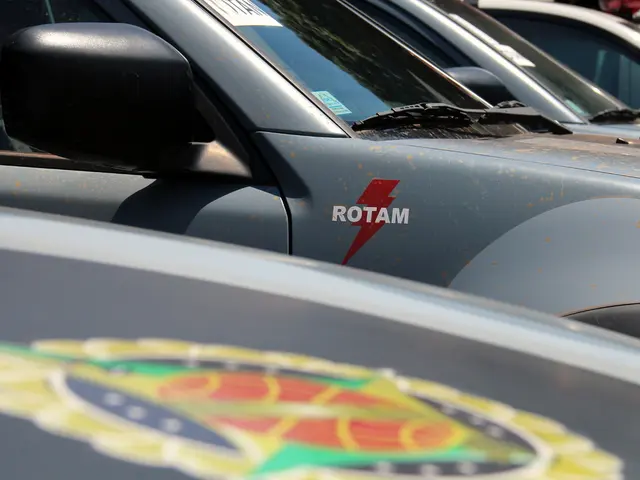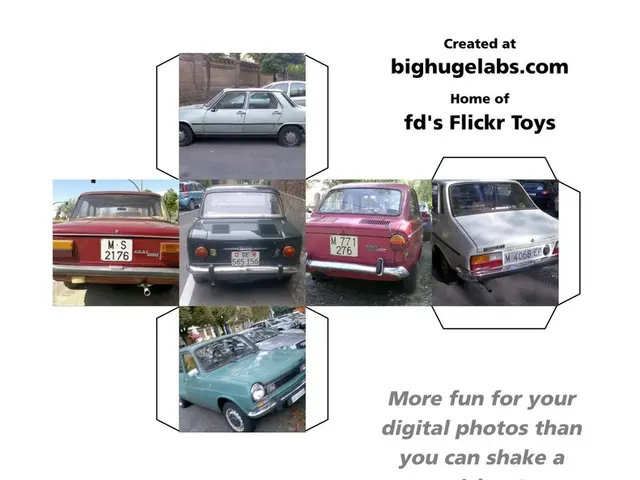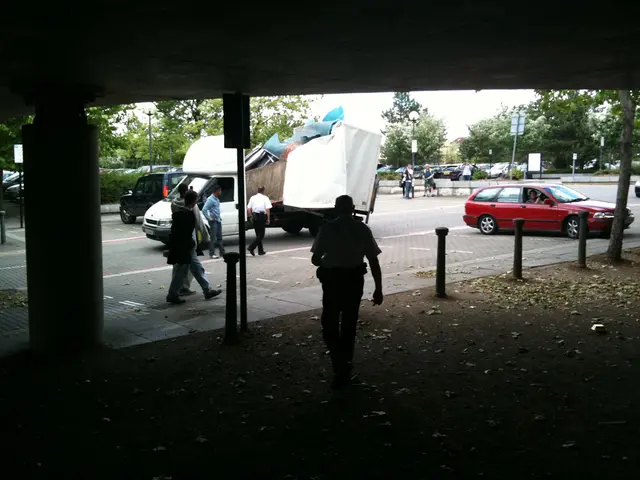The Jazzed-Up Year for Thuringia's Industry, Yet a Rocky Road Ahead for Key Sectors
- *
Industries related to automobiles and machinery production persist in their downward trend. - Industries of automotive and mechanical engineering persistently witness a downturn.
Amid optimism stemming from Thuringia's 2025 industrial turnover increase, there lurks a conundrum. Two major players in the region's economy—the automotive industry and machinery sector—persist in their struggles, following a rocky 2024. And the list of hurdles they've been facing is far from short!
The Statistical Office in Erfurt reported a robust start to the year. Companies have garnered revenues of approximately 9.5 billion euros, a leap of 4.6 percent from the prior year. Domestic sales zoomed by 3.9 percent to 5.9 billion euros, while exports showed a slightly higher growth rate at 5.7 percent. Total exports accounted for over one-third (37.6 percent) of Thuringia's industrial turnover, amounting to 3.6 billion euros.
However, beneath the surface, grimmer tales were spinning. While the machinery sector and service providers, including machine and equipment repair and installation, posted better outcomes than the previous year, a sizable drop was recorded in the machinery sector's turnover. A staggering 20 percent decrease was observed, and the automotive industry registration figures revealed a not-so-promising 11 percent drop.
Offsetting the positive trends, employment in Thuringia's industrial sector suffered a setback. Between January and March, approximately 141,000 workers—3,000 fewer than the previous year—were occupied, marking the seventh consecutive month of job losses. According to a survey of 776 companies with at least 50 employees, the situation doesn't seem to be relenting.
- Thuringia
- Shaky Steps Forward
- Questions for the Machinery Sector
- Automotive Headaches
- Erfurt's Economic Landscape
Suggested Enrichment Insights:
The machinery and automotive sectors' troubles, despite a turnover increase in the first quarter of 2025, could be due to a plethora of challenges. These may include:
- Global Economic Swings: The global economy's fluctuations, including demand shifts, supply chain disruptions, and tariff uncertainties, can influence the machinery and automotive sectors, impacting production and profitability even amid increased turnover.
- Hard Choices: Transitioning to electric vehicles (EVs) and adapting to new regulations, such as those relating to emissions, demand immense investment in new technologies and manufacturing processes, potentially stretching resources despite a turnover surge.
- Supply Chain Upheavals: Complex global supply chains characterize the automotive sector, making it vulnerable to disruptions such as semiconductor shortages or battery production capacity issues, which might hinder production and add to manufacturers' woes.
- Market Shifts: Evolution in consumer preferences and market dynamics, like transforming model choices or intensified competition, can affect specific product lines, even when overall turnover soars.
To discern a clearer picture of the predicaments Thuringia faces, it is essential to scrutinize localized factors, such as regional market conditions, labor costs, and government policies. As noted, these would offer invaluable insights for understanding the region's unique challenges and crafting effective solutions.
- The community policy in Thuringia must address the concerns of the struggling automotive and machinery sectors, as global economic swings, transitions to electric vehicles, supply chain upheavals, and market shifts pose challenges for these industries, despite the overall industrial turnover increase.
- The employment policy should aim at providing support to the workers affected by job losses in the industrial sector, especially since there has been a consistent decrease in employment figures over seven consecutive months.
- The government might consider implementing targeted strategies within the finance industry to stimulate investment in innovative technologies and manufacturing processes for the automotive sector, thus enabling a smoother transition to electric vehicles and complying with new emissions regulations.








